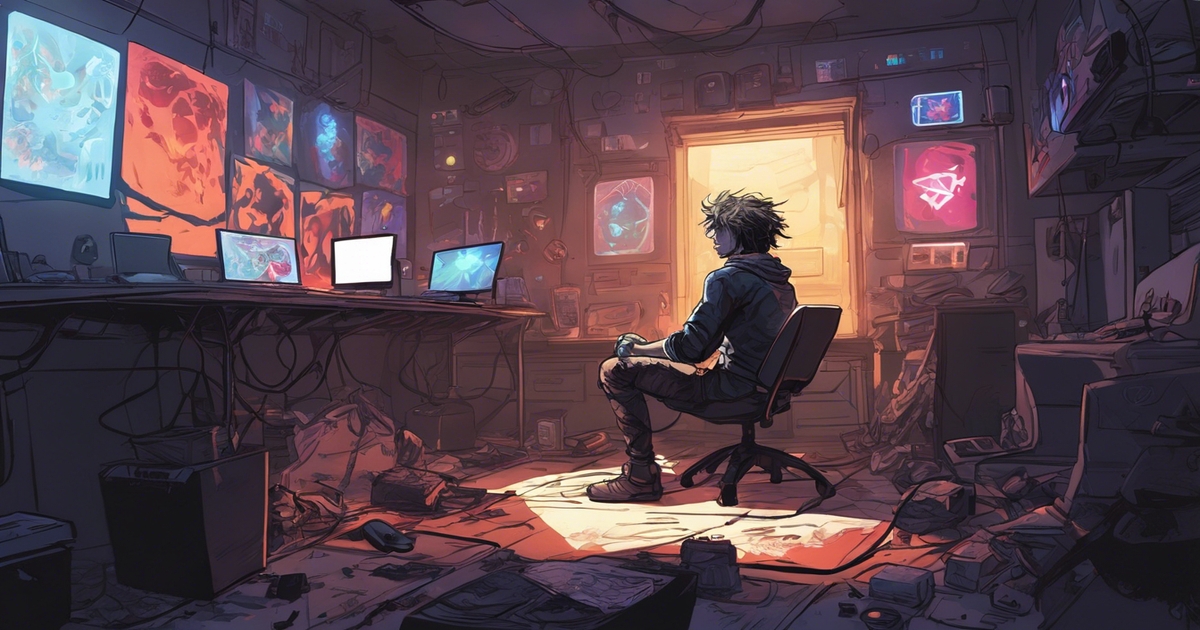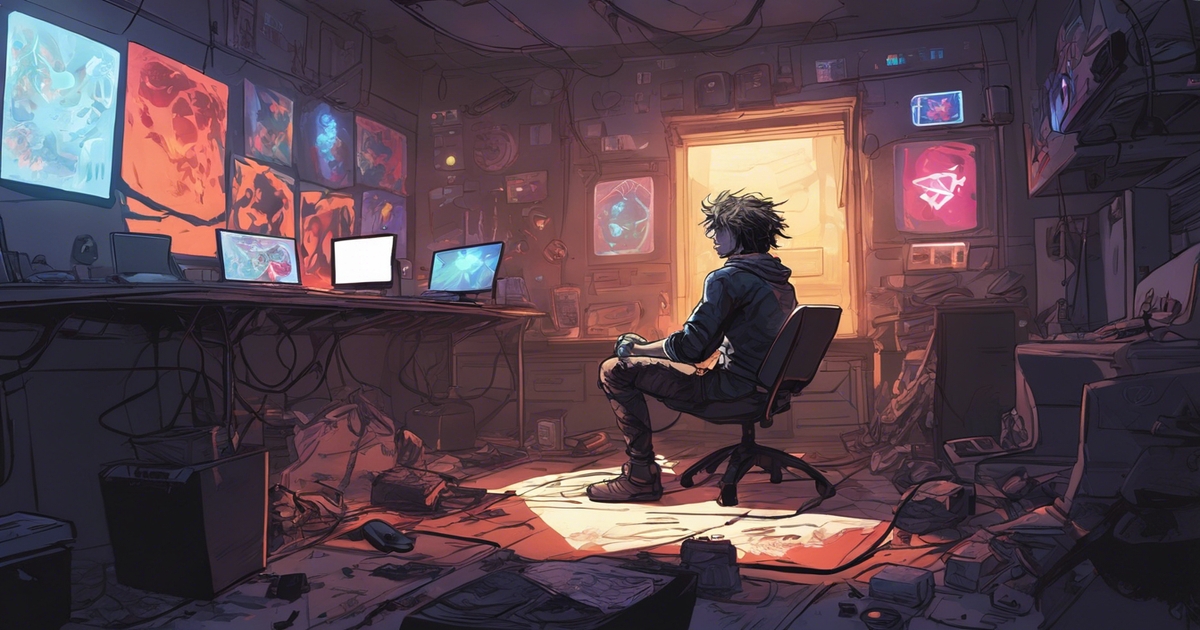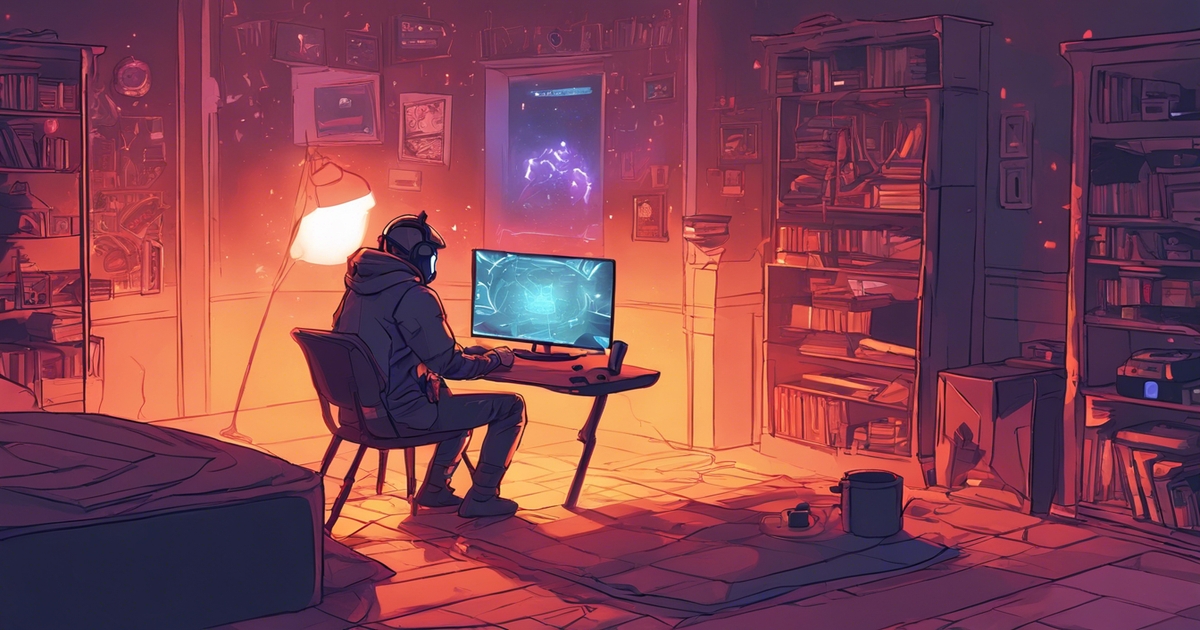10 Video Game Addiction Symptoms You Can’t Ignore

- 1. Neglecting Personal Hygiene
- 2. Disrupted Sleep Patterns
- 3. Declining Academic or Work Performance
- 4. Skipping Meals or Eating Irregularly Due to Gaming
- 5. Withdrawal from Social Activities
- 6. Physical Discomfort or Pain from Extended Play Sessions
- 7. Experiencing Irritability or Restlessness When Not Playing
- 8. Constant Thoughts About Gaming
- 9. Using Games to Escape Reality
- 10. Lying About Time Spent Gaming
- Closing Thoughts
- Frequently Asked Questions
Are you or someone you know spending excessive hours gaming? It’s essential to be aware of the signs of video game addiction. From neglecting responsibilities to experiencing withdrawal symptoms, recognizing these indicators is crucial for seeking help and support.
In this listicle, we’ll delve into the common symptoms associated with video game addiction, shedding light on a serious issue that affects many individuals.
Key Takeaways
- Recognize the signs of video game addiction by observing changes in personal hygiene, sleep patterns, academic or work performance, and eating habits.
- Be mindful of withdrawal from social activities, physical discomfort from extended play, irritability when not gaming, and constant thoughts about gaming as potential indicators of addiction.
- Acknowledge the use of games as an escape from reality and the tendency to lie about the time spent gaming as concerning behaviors.
- Encourage open communication and seek professional help if you or someone you know exhibits these symptoms to address video game addiction effectively.
- Limit gaming time, prioritize other activities, and seek support from friends, family, or mental health professionals to regain a healthy balance in life.
1. Neglecting Personal Hygiene

Neglecting personal hygiene is a common symptom of video game addiction. Individuals may exhibit infrequent showering or bathing, leading to potential health issues such as skin irritation and body odor. Wearing the same clothes for extended periods can also be an indication of neglecting personal hygiene, which can contribute to the development of various illnesses.
Ignoring dental care is another aspect often associated with video game addiction. The lack of attention to oral hygiene can result in dental problems, including cavities and gum disease. This neglect not only impacts physical health but also reflects a disregard for self-care.
According to the World Health Organization (WHO), mental health conditions are influenced by various factors, including lifestyle habits. Neglecting personal hygiene due to excessive gaming aligns with this perspective, highlighting how gaming behaviors can affect overall well-being.
In severe cases, individuals may experience social isolation due to their neglect of personal hygiene, further exacerbating mental health challenges. It’s crucial for individuals exhibiting these symptoms to seek professional help and support from loved ones.
2. Disrupted Sleep Patterns

Difficulty falling asleep after gaming can be a sign of video game addiction. The excitement and stimulation from gaming can make it hard for individuals to wind down, leading to insomnia and disrupted sleep patterns.
Frequently staying up late to play games is another symptom of video game addiction. This behavior can lead to a lack of adequate sleep, impacting overall health and well-being. Research has shown that excessive screen time before bed can disrupt the body’s natural sleep-wake cycle, making it harder to fall asleep.
Feeling tired and groggy during the day is a common consequence of disrupted sleep due to excessive gaming. Lack of quality rest affects cognitive functions, mood, and physical health. It may also contribute to an increased reliance on caffeine or energy drinks to combat fatigue, further exacerbating the negative impact on sleep patterns.
Individuals experiencing these symptoms should consider seeking help from mental health professionals who specialize in addressing behavioral addictions like video game addiction. With proper support and guidance, it’s possible for individuals struggling with disrupted sleep patterns due to gaming addiction to regain control over their habits and improve their overall well-being.
3. Declining Academic or Work Performance

Missing deadlines or important tasks due to gaming can have negative consequences on an individual’s academic or work life. Research shows that excessive gaming often leads to decreased productivity at school or work, affecting the overall performance in exams or evaluations. For instance, a study published in the Journal of Behavioral Addictions found that adolescents who exhibited signs of video game addiction were more likely to experience declining academic performance.
Moreover, the warning signs of declining academic or work performance should not be overlooked by parents and professionals. It is crucial to understand that these behaviors are not simply a phase but can have long-term effects if left unaddressed. Seeking professional help is essential when these symptoms persist and start interfering with daily responsibilities.
Parents need to be aware of these warning signs and take appropriate action when they notice their children showing poor performance in school due to excessive gaming habits. Understanding the risk factors associated with this behavior can aid in early intervention, preventing further detrimental effects on academic and professional growth.
4. Skipping Meals or Eating Irregularly Due to Gaming

While engrossed in gaming sessions, individuals may forget to eat meals, leading to irregular eating habits. This can result in a preference for quick and often unhealthy snacks over regular, balanced meals. Prolonged gameplay may cause gamers to lose track of meal times altogether.
These behaviors can lead to nutritional deficiencies and negatively impact overall health. Forgetting or delaying meals due to gaming can contribute to inadequate intake of essential nutrients such as vitamins, minerals, and fiber.
A study conducted by the American Journal of Clinical Nutrition found that prolonged screen time was associated with poor dietary habits among adolescents. The research revealed that increased screen time was correlated with a higher consumption of unhealthy snacks and lower consumption of fruits and vegetables.
Irregular eating patterns linked to excessive gaming have been known to disrupt metabolism and contribute to weight management issues. According to the National Institute on Aging, erratic eating schedules can interfere with the body’s ability to regulate blood sugar levels effectively.
5. Withdrawal from Social Activities

Canceling plans with friends to play games is a common sign of video game addiction. This behavior can lead to strained relationships and increased isolation. According to the National Institute on Media and the Family, individuals addicted to gaming are more likely to lose interest in hobbies and social events, preferring virtual interactions over real-life experiences.
Isolating oneself from family and peers is another red flag for video game addiction. A study published in the Journal of Behavioral Addictions found that excessive gaming was associated with decreased time spent with family members and reduced participation in social activities. This withdrawal from social life can contribute to feelings of loneliness, depression, and anxiety.
Research conducted by Dr. Hilarie Cash at reSTART Life revealed that young adults struggling with video game addiction often experience challenges in maintaining healthy relationships outside of gaming environments. The impact extends beyond personal connections as it affects academic performance, career prospects, and overall well-being.
6. Physical Discomfort or Pain from Extended Play Sessions

Extended play sessions can lead to various physical discomforts and health problems, including:
- Experiencing muscle stiffness and soreness from prolonged sitting.
- Developing headaches or eye strain from excessive screen time.
- Numbness or tingling in hands and fingers after extended gameplay.
Prolonged periods of sitting can result in musculoskeletal issues, such as back pain, neck pain, and poor posture. Excessive screen time may cause digital eye strain, leading to symptoms like dry eyes, blurred vision, and headaches. The repetitive motions involved in gaming could also contribute to hand and wrist discomfort.
It’s essential for individuals experiencing these symptoms to take regular breaks during gameplay. Simple stretching exercises for the neck, shoulders, arms, and wrists can help alleviate muscle stiffness. Moreover, following the 20-20-20 rule – taking a 20-second break every 20 minutes to look at something 20 feet away – can significantly reduce eye strain.
Furthermore, investing in ergonomic furniture and accessories tailored for gaming setups could provide better support during extended play sessions. Adjustable chairs that promote good posture along with proper positioning of screens may mitigate the risk of developing physical discomforts associated with prolonged gaming.
7. Experiencing Irritability or Restlessness When Not Playing

Feeling agitated when unable to access games is a common symptom of video game addiction. This can manifest as a strong desire to return to gaming, even during necessary breaks or other activities.
Restlessness and impatience during breaks from gaming are also indicative of potential addiction. Individuals may struggle with focusing on non-gaming tasks and constantly feel the pull back toward playing.
Easily becoming frustrated when interrupted while playing further highlights the impact of excessive gaming. This irritability often stems from an intense need to continue gaming uninterrupted, leading to emotional distress when this need is not met.
These symptoms can result in strained relationships, decreased productivity in work or school, and heightened stress levels. Addressing these signs early on can help prevent the escalation of video game addiction and its associated challenges.
8. Constant Thoughts About Gaming
Constantly thinking about gaming can be a sign of video game addiction. Many gamers obsessively ponder their next gaming session, often finding it difficult to focus on non-gaming activities. This preoccupation with gaming can lead to restlessness when not playing games.
For instance, a study published in the journal “Addictive Behaviors” found that excessive gaming habits were associated with difficulty disengaging from the activity and intrusive thoughts about gaming during other activities. Research has shown that teenage video game addiction can have negative effects on cognitive functions, including attention and decision-making processes.
It’s crucial for parents and guardians to ask questions and monitor their teen boys’ gaming behavior if they notice constant thoughts about gaming. When these symptoms are present, it may indicate the presence of internet gaming disorder or video game addiction.
Understanding how excessive gaming affects the brain is essential for addressing this issue. By recognizing the signs of constant thoughts about gaming, individuals can seek appropriate support and interventions to manage their gaming habits effectively.
9. Using Games to Escape Reality
Seeking refuge in games is a common behavior among individuals dealing with real-life challenges. Many people, especially teens and children, find comfort and distraction in virtual worlds as a way of coping with stress or anxiety. This can lead to excessive video game use, potentially developing into game addiction.
Gaming serves as an escape from the pressures of reality for numerous individuals. It offers an alternate universe where players can temporarily evade their problems and responsibilities. The immersive nature of online gaming, particularly multiplayer games, provides an environment where individuals can feel a sense of accomplishment and control that may be lacking in their everyday lives.
For some, playing games becomes a form of therapy – a means to alleviate emotional distress or mental health issues. However, when this reliance on gaming starts to interfere with daily activities such as work, school, or social interactions, it could indicate the presence of video game addiction.
It’s essential to recognize that while using games for temporary relief is understandable and even beneficial in moderation, overreliance on them can have detrimental effects on overall well-being.
10. Lying About Time Spent Gaming
Concealing the actual hours spent gaming is a common behavior among individuals struggling with video game addiction. They may minimize or hide the true extent of their gaming habits from family, friends, and colleagues to avoid judgment or intervention.
This can extend to downplaying the frequency and duration of their gaming sessions. For instance, someone addicted to video games might claim to only play for an hour when in reality they spend several hours each day immersed in gameplay.
Furthermore, individuals grappling with video game addiction may provide false information about their gaming frequency as a way to deflect concerns from others. This could involve fabricating stories about reducing their screen time or exaggerating periods of abstinence from gaming.
In extreme cases, this lying behavior can lead to strained relationships and deteriorating trust between the individual and their loved ones. It often becomes a significant barrier to seeking help for overcoming video game addiction due to the fear of facing consequences or being misunderstood.
Recognizing these deceptive practices is crucial for identifying potential signs of video game addiction early on and intervening effectively before it escalates into more severe issues.
Closing Thoughts
Recognizing the signs of video game addiction is the first step towards addressing the issue. If you or someone you know identifies with several of the symptoms mentioned, it’s essential to seek support and guidance. Remember, you are not alone in this, and there are resources available to help you navigate through this challenge. Whether it’s reaching out to a trusted friend or seeking professional assistance, taking proactive steps can lead to a healthier relationship with gaming and overall well-being.
It’s important to prioritize self-care and seek balance in all aspects of life. By being mindful of these symptoms and their potential impact, you can make informed choices that promote a more fulfilling and balanced lifestyle. Take the time to reflect on your gaming habits and consider making positive changes where needed. Your well-being matters, and seeking help is a sign of strength. Stay connected with supportive communities and resources as you work towards a healthier relationship with gaming.
Frequently Asked Questions
What are the potential signs of video game addiction?
Video game addiction can manifest through neglecting personal hygiene, disrupted sleep patterns, declining academic or work performance, irregular eating habits due to gaming, withdrawal from social activities, physical discomfort from extended play sessions, irritability when not playing, constant thoughts about gaming, using games to escape reality and lying about time spent gaming.
Is it common for gamers to experience physical discomfort or pain due to excessive play?
Yes. Extended periods of gameplay can lead to physical discomfort or pain in various parts of the body such as the hands, wrists, back and eyes. It’s important for gamers to take regular breaks and practice good posture while playing.
How can I help someone who may be struggling with video game addiction?
Approach them with empathy and express your concern without judgment. Encourage open communication about their feelings and experiences related to gaming. Offer support in finding professional help if needed and engage in alternative activities together that don’t involve gaming.
Can video game addiction affect a person’s mental health?
Certainly. Excessive gaming can contribute to anxiety, depression, social isolation and other mental health issues. It’s crucial for individuals experiencing these symptoms to seek professional guidance for proper assessment and treatment options.
What should I do if I suspect that I might have a problem with video game addiction?
Recognizing this is an important first step. Consider seeking support from friends or family members whom you trust. Additionally speaking with a mental health professional specialized in behavioral addictions could provide valuable insight on how best to address any concerns you may have regarding your relationship with gaming.
